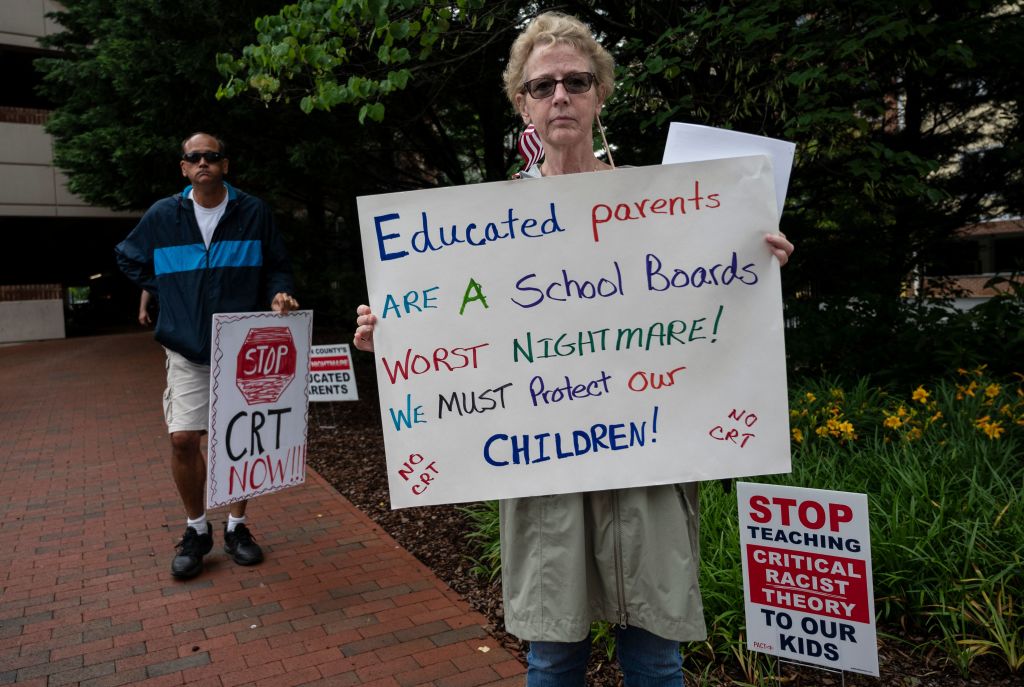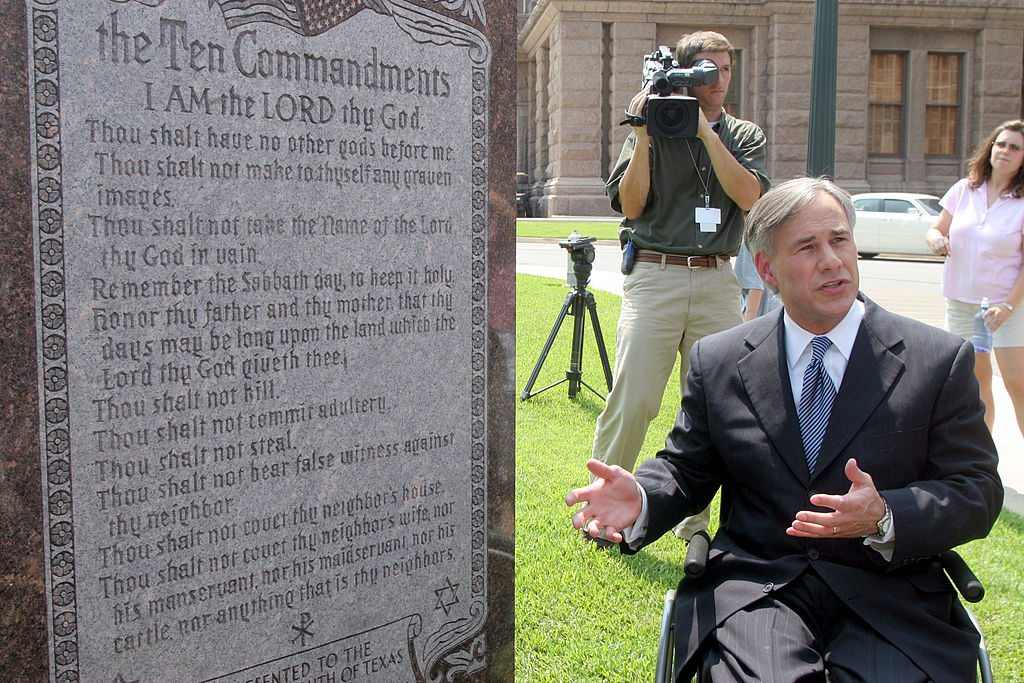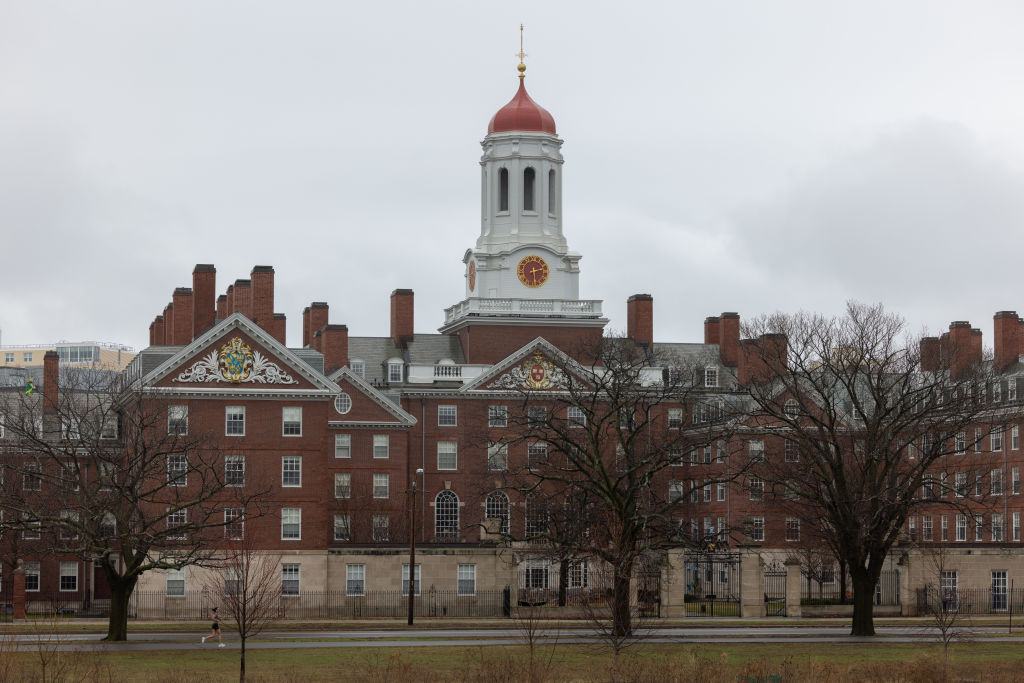It’s just after ten o’clock and about a dozen activists are gathered in a hotel meeting room near Dulles airport. Christopher Stio, an educator with Americans for Prosperity, reminds the group for about the third time, “We are not normal!”
He has a point. After all, who in their right minds would spend Saturday in a five-hour grassroots training session at a DoubleTree? The attendees here, though, have an important and timely motivator: improving their local school systems.
Education policy became a top issue in 2021’s gubernatorial race in Virginia. Parents were fired up about the breakdown of public schools, from extended school closures during the pandemic to contentious left-wing doctrine being inserted into official curricula. Republican Glenn Youngkin rode this wave to the governor’s mansion. Once there, he quickly racked up several victories for the movement for greater parental rights in education, including banning Critical Race Theory, issuing new guidance on how schools should accommodate transgender students and rescinding mask mandates in schools.
“Over the last few years, bureaucrats and politicians have stopped listening to parents in Virginia and I immediately went to work to change that, empowering parents since day one,” Youngkin said in a statement. “Under Virginia law, parents have a fundamental right to make decisions regarding their children’s upbringing, their education, their care — and so we have implemented parental notification, parental opt-out and parental permission mechanisms. The Youngkin administration is committed to reinforcing parents’ ability to make the right decisions for their children and their well-being across the Commonwealth.”
Local parents aren’t content leaving it all up to the governor. They have continued putting pressure on their local school boards and elected political officials. Fight For Schools, a Loudoun County parents group, poured time and money into the 2022 midterm elections against pro-teachers’-union Democrats. The Virginia Education Opportunity Alliance, a nonprofit founded in November 2021, hosts grassroots training events like the one I attended to teach people how to advocate for educational freedom and curriculum transparency.
“If we’re upset about what happened on Tuesday, we need to rest up on Wednesday and we need to get back at it,” Stio told the attendees at the session, which came days after the midterm elections. “But it has to go beyond Election Day… we have to hold the people elected accountable even if they’re on our side.”
Lately, Virginia parents are focused on new data that shows educational outcomes fell sharply during the pandemic. Youngkin has urged Virginia schools to more aggressively spend their Covid relief funds. Some parents, though, are content to leave the public school system entirely; over the past two years in Virginia, public school enrollment fell sharply while private and homeschool enrollment surged. Private and charter schools, however, can be prohibitively expensive for many families. If public schools aren’t using tax dollars to provide a good education to students, then shouldn’t parents be allowed to take that money somewhere that will better benefit their child?
That’s the premise behind what the educators at the VEOA training refer to as “educational freedom” and “parental choice,” or what has more commonly been known as “school choice.” Students, they reason, should not be stuck in failing school systems solely because their parents can’t afford to send them elsewhere.
The VEOA training emphasized the need to do what conservatives usually fail to do: They have to tell stories to the people who matter. Data is important, Stio explained, but personalizing it with your own experience is much more compelling. He told the attendees about the struggles of having a preschool-aged child stuck on Zoom calls for three hours. We watched a video about an autistic child who wasn’t getting the one-on-one assistance he needed at school, so his parents also enrolled him in an equine therapy course. This hybrid model of learning was helping their child reach developmental milestones much more quickly than he would have in just the classroom. One attendee shared how her dyslexic child had been passed through the public school system despite not hitting the appropriate educational benchmarks, presumably because holding her back could’ve affected the school’s graduation ratings.
Stories like these have fueled the parental rights movement over the past couple of years: the daughter who was sexually assaulted by a “genderfluid” boy in the women’s bathroom, the son who committed suicide because he couldn’t participate in extracurricular activities, the child who regressed because she couldn’t attend speech therapy, or the parent who went to pick up books at the library only to discover pornographic material on the shelves.
The VEOA also offered its attendees the practical advice of where and how to share these stories. A hand-out packet and instruc- tions during lunch walked through how to set up meetings with lawmakers, research bills, navigate the new Virginia General Assembly Building, have an effective lobby visit and other useful information for anyone who doesn’t work in local politics.
A dozen training attendees may not seem like a lot, but if even half of them show up to a legislator’s office or sign up for their next school board meeting, they could have quite an impact.
The number of parents doing something about their frustration with their children’s education is growing. I’ve attended a Loudoun County School Board meeting where about 120 Loudoun residents had signed up to speak. It seemed like a tidal wave. Schools and local officials in Virginia had better prepare themselves, because the parental rights movement isn’t going away any time soon — and they’re only getting better at organizing.
This article was originally published in The Spectator’s January 2023 World edition.
























